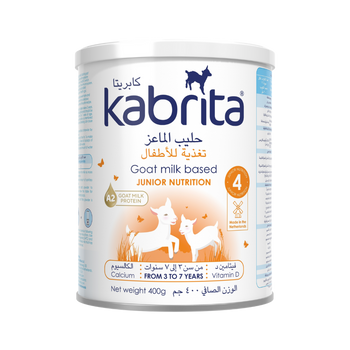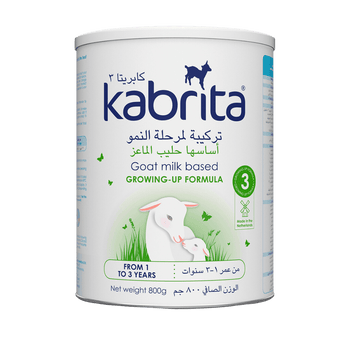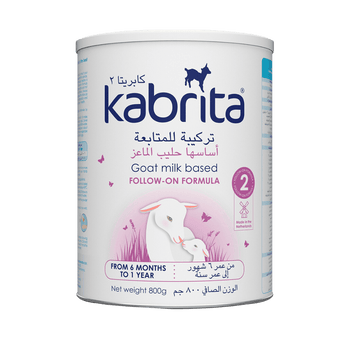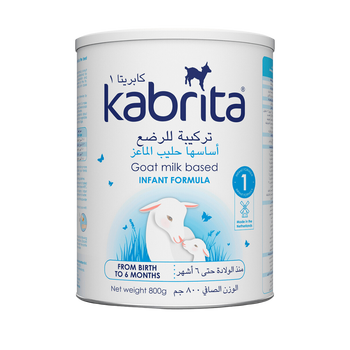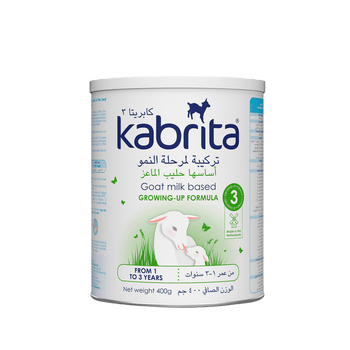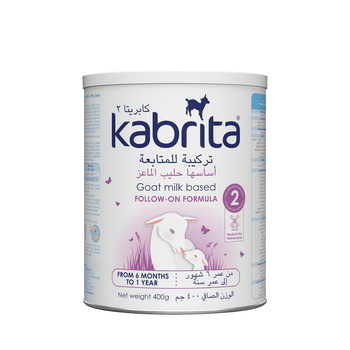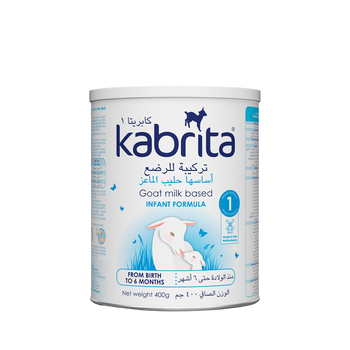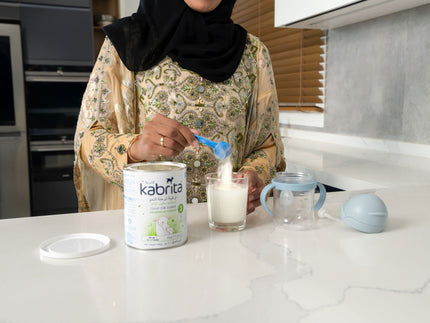Why Choose Goat Milk Formula

* Breastfeeding is best for your baby
Goat's milk is becoming increasingly popular as the milk of choice for infants. Wondering why more and more parents are turning to goat's milk for their little ones? Let's explore the reasons behind this growing trend.
Gentle and Nutrient-Rich
Goat milk has special qualities that make it a gentle and nutrient-rich alternative, ideal for your baby. Here's what makes it stand out:
Gentle on Tiny Tummies
Goat milk is exceptionally easy for babies to digest. It contains a unique combination of fats and proteins, making it a perfect match for sensitive tummies. The small fat globules and low levels of αs1-casein in goat's milk lead to a gentle stomach clot, allowing it to move through the digestive system with ease.
Packed with Essential Nutrients:
Goat's milk is a nutritional powerhouse, providing essential vitamins (A, D, B1, B2, and B12), minerals (calcium, phosphorus, magnesium, zinc, and iodine), proteins, and healthy fats.
It also boasts a high concentration of nucleotides, which play a crucial role in supporting the immune system and promoting healthy cell growth. Because it's easy to digest, your baby's body can efficiently absorb these vital nutrients.
Delightfully Mild Taste:
One of the standout features of goat's milk is its delicious taste. It has a mild, fresh, and delightful flavor that babies tend to enjoy.
Many parents find that their little ones happily accept goat's milk, thanks to its mild and pleasant taste. High-quality goat's milk, such as that used in baby products, enhances this taste even further.
Goat's Milk and Allergies
Understanding how goat's milk relates to allergies is crucial for the well-being of your baby. Let's break it down for clarity:
Confirmed Cow's Milk Allergy:
If your baby has a medically confirmed cow's milk allergy, goat's milk isn't a suitable substitute.
This allergy triggers an immediate immune system response to cow's milk protein and is common among infants. It's often associated with the αs1-casein protein in cow's milk, and while goat's milk contains lower levels of αs1-casein, there is still a risk of allergic reactions.
A Solution for Some:
For babies with cow's milk allergies (not to be confused with lactose intolerance) or those at higher risk due to family history, goat's milk can be a welcome alternative.
If your baby has trouble digesting cow's milk, leading to issues like colic, constipation, or mild eczema, goat's milk may offer relief. This group represents a significant portion of the infant population, estimated at 10 to 20%.
Seek Professional Guidance:
If you suspect your baby may have a cow's milk allergy, it's essential to consult a healthcare professional for a confirmed diagnosis before considering a switch to goat's milk. For additional information on infant allergies and sensitivities, refer to our FAQ section on Allergies, Allergies & Other Issues.
In summary, goat's milk for babies offers a gentle, nutrient-rich, and great-tasting alternative to cow's milk. Ensure your baby's well-being by considering the benefits goat's milk provides while keeping in mind the factors related to allergies and sensitivities.
